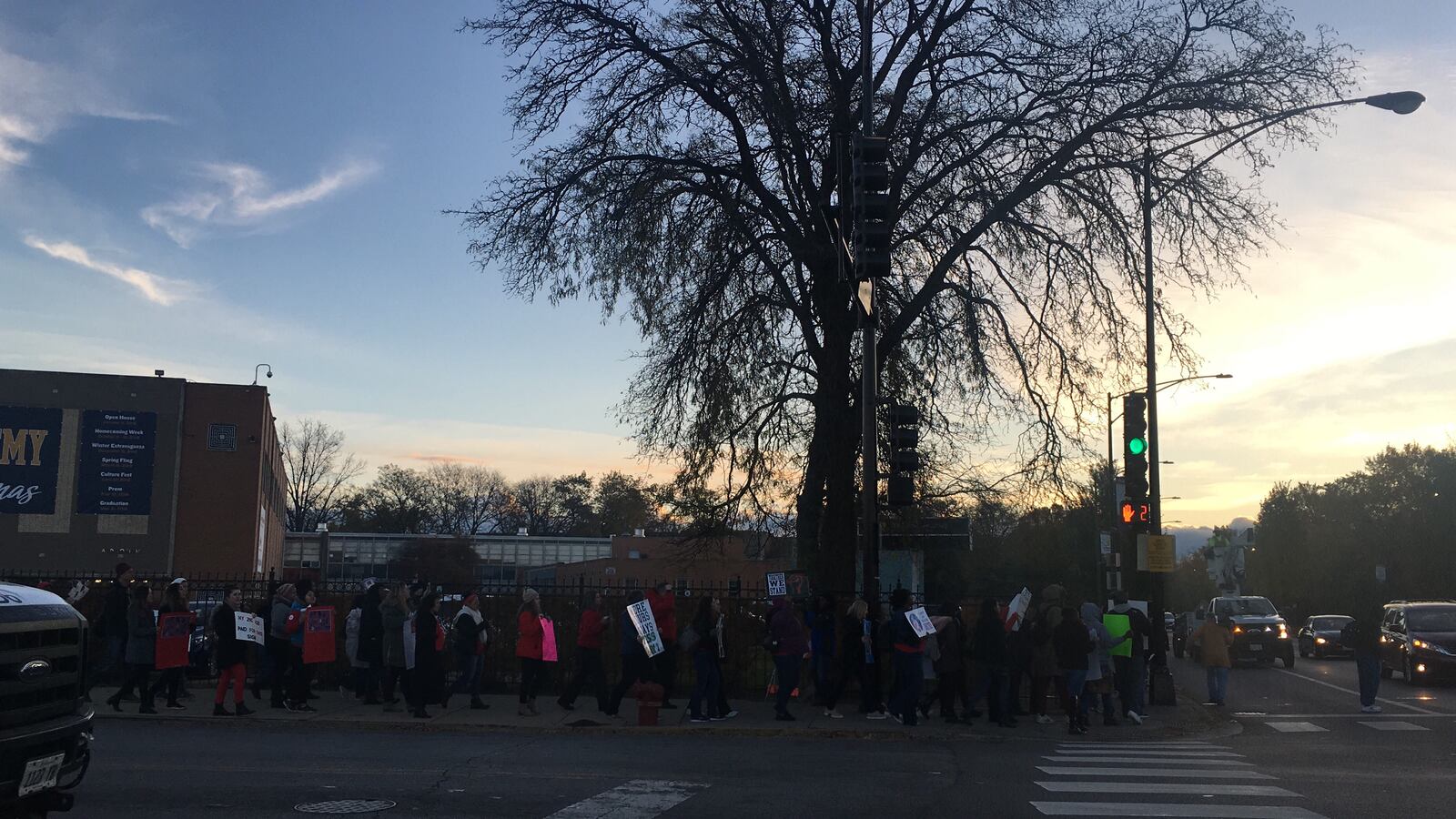Kimberly Randle stood outside Chicago International Charter School’s Northtown Academy Friday morning, as the sun rose behind her. Randle was one of about 30 educators who rallied outside the school in advance of a vote to authorize a charter teachers strike.
Randle was among the 96 percent of the approximately 138 unionized Chicago International educators who voted to authorize such a strike should contract negotiations falter.
“Our students are not being able to get the education that they deserve,” Randle said, noting that many of her sophomore English students began the school year unprepared — having had rotated through teachers and substitutes the year prior.
She said the “massive turnover” at CICS Ralph Ellison, the South Side school where she teaches, is one reason she voted to authorize the strike. (Retention figures were not available at the school level on the Illinois Report Card.)
Friday’s vote was the second of its kind. On Tuesday, unionized educators at 15 Acero schools voted overwhelmingly in favor authorizing a strike if contract negotiations stalled.
Between Chicago International and Acero, educators in Chicago’s charter sector have gained national attention — as either could be the nation’s first-ever charter teachers strike. In a sector of education known for its high teacher turnover and low pay, and at a time when organized labor is embattled, a successful charter teachers strike could shift the narrative on Ameican unions.
But the strike authorization vote at Chicago International is complicated. A handful of management companies run its portfolio of 15 schools.
At the four schools that Civitas Education Partners manage, 98 percent of teachers are unionized and threatening a strike. Among the contract demands: more staff for special education, smaller class sizes, better pay and benefits, and a single contract covering all four schools. They also want paraprofessionals, such as teachers aides, to join the bargaining team at three of the four Civitas-managed schools where they are not currently part of the union. At one school run by the Civitas-affiliated ChicagoQuest Schools, paraprofessionals are unionized.
In a statement, Chicago International said that although it is not a direct employer of the teachers taking the strike authorization vote, it hopes that a strike would be avoided.
Andie Cavedo, who teaches social studies at CICS Northtown Academy, a high school on the city’s far northwest side, voted to strike on Friday. She told Chalkbeat she hadn’t originally intended to teach in the charter sector but had received her teaching license in 2013 — the same year Chicago Public Schools laid off more than 1,000 teachers.
Now in her sixth year at Northtown, she said she’d like to stay put, given the right conditions, such as a payment scale that takes into account teachers’ education and longevity. She said that could help dissuade educators from leaving for better-paid jobs in Chicago Public Schools or in the suburbs.

